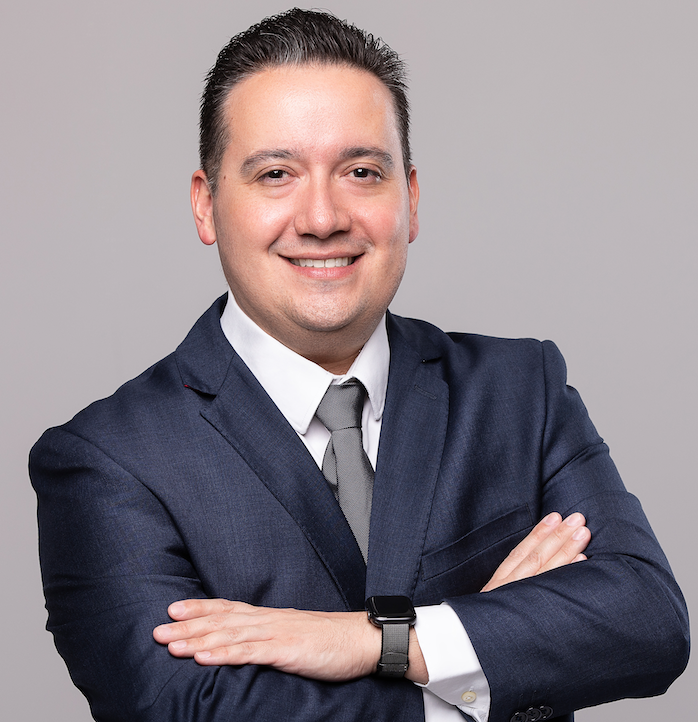
Dr. Igor Chiminacio
Dr. Igor Chiminacio
Dr Igor Chiminacio – Endometriosis Specialist
Summary: Dr Igor Chiminacio is a dedicated endometriosis specialist based in São Paulo, Brazil, known for his compassionate, evidence-based care. With a strong belief in the embryological origin of endometriosis, particularly the Mullerian remanent theory—Dr. Chiminacio offers a thoughtful and holistic approach to treatment. He specializes in excision surgery, widely recognized as the gold standard for effective endometriosis care.
Dr Igor Chiminacio also tailors post-operative plans to each patient’s unique needs. For those with coexisting adenomyosis, he often recommends GnRH medication to help manage persistent symptoms. His approach to long-term pelvic pain includes a careful evaluation for underlying conditions like adenomyosis, ensuring no aspect of a patient’s health is overlooked.
Patients seeking expert, empathetic care for endometriosis trust Dr Igor Chiminacio for his deep expertise and commitment to improving quality of life.
City: Sao Paulo, Brazil
Philosophy of Endometriosis Care: I really believe in the embryological origin of endometriosis, especially the Müllerian remnant theory.
What type of surgery do you perform for endometriosis: Excision
Medication: GnRH post-operative for patients who are also suffering from adenomyosis.
Approach to Persistent Pain After Surgery: Identify and treat adenomyosis concomitant

Dr. Andres Viguera Smith
Dr. Andres Viguera Smith, Endometriosis Specialist
City: Talcahuano, Chile
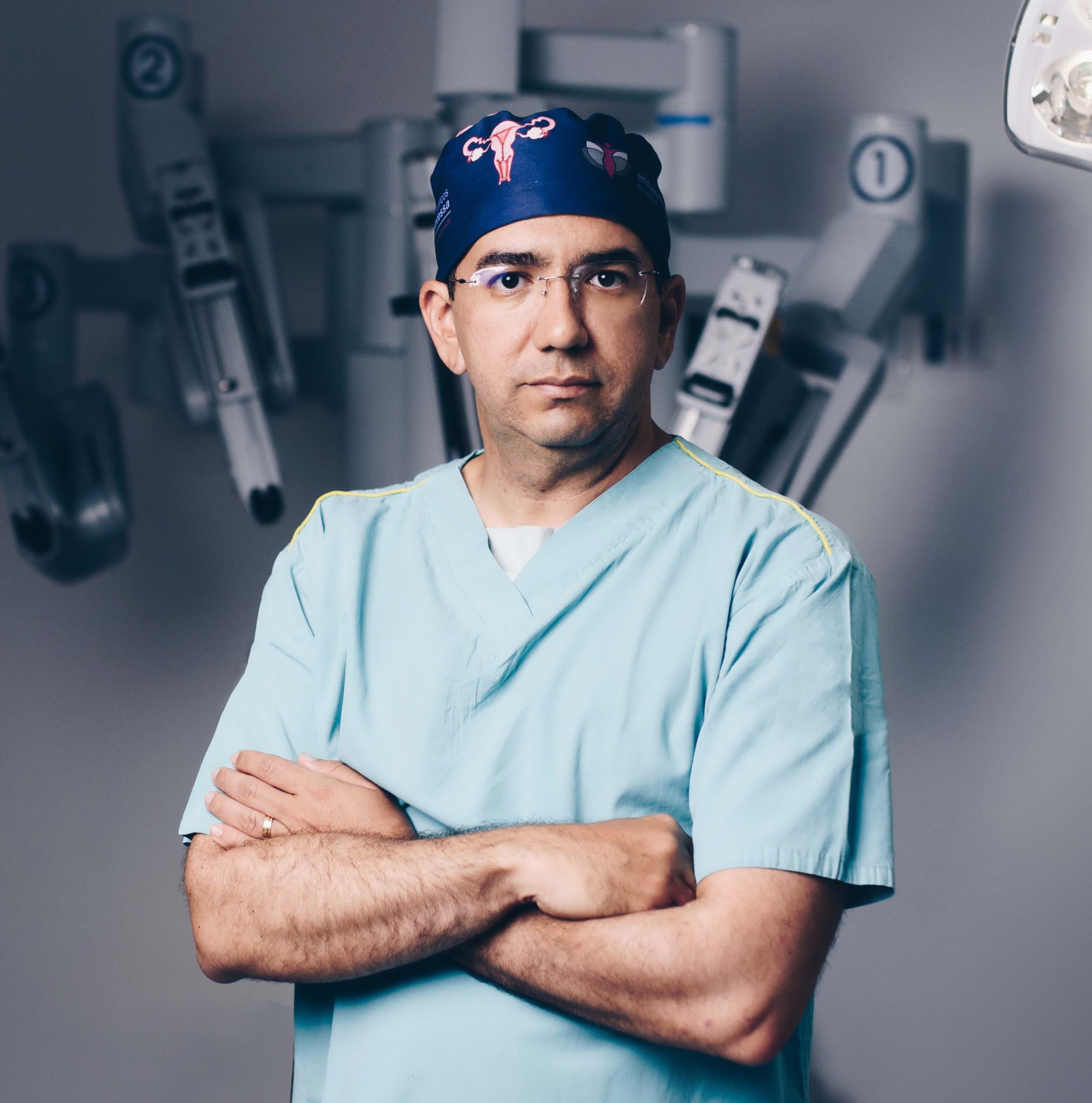
Dr. Marcos Travessa
Dr. Marcos Travessa
Dr Marcos Travessa – Endometriosis Specialist
Summary: Dr Marcos Travessa is a dedicated endometriosis specialist based in Bahia, Brazil, known for his expert use of excision surgery. Dr Marcos Travessa Brazil follows the embryological Mullerian theory by David Redwine to understand and treat endometriosis with a personalized approach. He carefully tailors treatments to each patient’s needs, offering contraceptives in various forms and managing chronic pain with non-steroidal anti-inflammatory drugs and medications like tricyclic antidepressants, pregabalin, and gabapentin. He emphasizes avoiding morphine derivatives and prioritizes patient safety and comfort. For persistent pain after surgery, Dr Marcos Travessa incorporates a holistic approach including nutritional therapy, pelvic physiotherapy, and collaboration with pain specialists. His warm and comprehensive care supports patients in managing symptoms and improving quality of life while preserving fertility whenever possible. Patients seeking a thoughtful, skilled expert will find compassionate care with Dr Marcos Travessa.
City: Bahia, Brazil
Philosophy of Endometriosis Care: David Redwine’s embryological (Mullerian) theory
What type of surgery do you perform for endometriosis: Excision
Medication: Contraceptives in their various routes of administration, non-steroidal anti-inflammatory drugs, medication for the treatment of chronic pain (tricyclic antidepressants; pregabalin; gabapentin), analgesics avoiding morphine derivatives. Contraceptives in patients without contraindications and without the desire to become pregnant. Analgesics and NSAIDs in patients with pain refractory to the use of contraceptives and medications for chronic pain in patients with endometriosis with some degree of chronic pain.
Approach to Persistent Pain After Surgery: Nutritional therapy, pelvic physiotherapy, pain specialists, contraceptives, and analgesics, among other options.
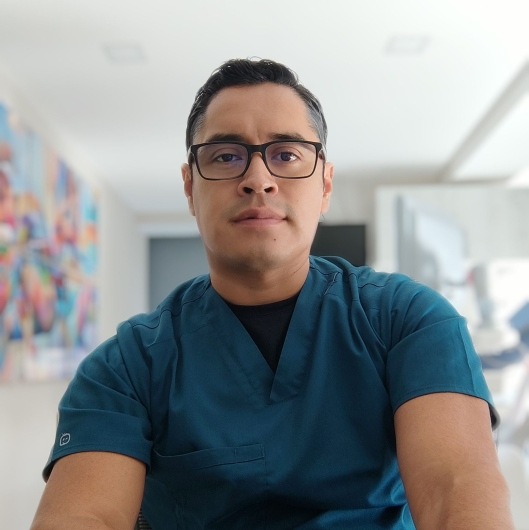
Dr. Carlos Alberto Serrano Flores
Dr. Carlos Alberto Serrano Flores
Dr Carlos Alberto Serrano – Gynecology & Minimal Invasive Surgery, Endometriosis Specialist.
Summary: Dr Carlos Alberto Serrano is a dedicated endometriosis specialist based in Puebla, Mexico, known for his expert care in gynecology and minimally invasive surgery. Dr Carlos Alberto Serrano approaches endometriosis through a comprehensive understanding of Müllerianosis, epigenetic, genetic, and immunological theories to tailor treatments that address each patient’s unique condition. He specializes in surgical excision of endometriosis lesions and offers personalized medical management for those who may not require surgery or wish to preserve fertility. His treatment plans include hormonal therapies, analgesics, and supportive care like acupuncture and psychological therapy. Dr Carlos Alberto Serrano emphasizes a holistic approach, recognizing that persistent pain often involves multiple factors. His multidisciplinary team focuses on managing chronic pelvic pain through pelvic floor rehabilitation, pain specialists, and mental health support. Patients benefit from compassionate, patient-centered care designed to improve quality of life while addressing complex endometriosis symptoms.
City: Puebla, Mexico
Philosophy of Endometriosis Care: Müllerianosis, Epigenetic, Genetic, and Immunological Theories.
What type of surgery do you perform for endometriosis: Excision
Medication: For patients who do not require surgery, who do not desire fertility, or who do not desire surgery: Oral contraceptives, progestins, Levonorgestrel IUD (especially for those with associated adenomyosis), Analgesics, multivitamins, smooth muscle relaxants, etc. Patients who require surgery in the pre-and postoperative period and without desire for short-term fertility, 6 months to 2 years, preferably progestins. Amitriptyline, Gabapentin in patients with chronic pelvic pain and central sensitization. For all patients, multivitamins, natural anti-inflammatories, acupuncture, psychological and psychiatric therapy.
Approach to Persistent Pain After Surgery: Most patients who require surgery have other added pain syndromes; therefore, surgery is only a complement to the resolution of pain. Patients must be evaluated with a chronic pelvic pain approach, taking into account each aspect that can trigger this problem. They must be evaluated by pain specialists, we always treat central sensitization, and myofascial compromise with pelvic floor rehabilitation, we treat psychologically and psychiatrically, we improve the metabolic environment with nutrition; and we address pain from a holistic approach. We have a large multidisciplinary group focused on patients with endometriosis.

Dr. Sadikah Behbehani
Dr. Sadikah Behbehani,
Sadikah Behbehani – Endometriosis Specialist
Summary: Dr Sadikah Behbehani is a dedicated endometriosis specialist based in Costa Mesa, California, known for her compassionate and expert care. Dr Sadikah Behbehani focuses on thorough endometriosis excision surgery to remove the disease at its roots while prioritizing fertility preservation. Dr Behbehani carefully removes endometriosis from critical areas such as the fallopian tubes, ovaries, bowel, bladder, and diaphragm, aiming to minimize damage and support patients’ reproductive health. She emphasizes understanding the embryologic origins of endometriosis to provide personalized treatment. After surgery, Dr Sadikah Behbehani recommends medication only when necessary, such as muscle relaxants or nerve pain treatments, avoiding narcotics entirely. For persistent pain, Dr Behbehani adopts a multidisciplinary approach, coordinating with specialists in pain management, physical therapy, and gastroenterology, while closely monitoring each patient’s recovery with ongoing care every few months. Her patient-centered philosophy ensures compassionate, tailored support for lasting relief.
City: Costa Mesa, California
Philosophy of Endometriosis Care: It doesn’t matter where it came from; what matters is that it’s removed. Endometriosis, like cancer, can spread via multiple channels. Also, pleuripotent stem cells in the pleura and peritoneum can lead to its development. Most endometriosis patients are born with these cells that differentiate into endometriosis with hormone stimulation. It’s nothing that women did that led to their development. We have to understand embryologic origin to understand endometriosis growth because endometriosis can be associated with congenital anomalies in the genitourinary and reproductive organs.
What type of surgery do you perform for endometriosis: I perform endometriosis excision surgery to remove the endo from its roots, but I also focus on preserving fertility. I remove endometriosis from around the fallopian tubes and ovaries routinely. My surgical strategies focus on minimizing damage to the ovaries to help preserve ovarian reserve and help with future fertility. I also perform tubal surgery when necessary. It’s important to appropriately excise the disease while minimizing damage to reproductive organs. I also excise endometriosis from the bowel, bladder, and diaphragm and perform an appendectomy when necessary.
Medication: I only recommend medication after surgery after we’ve ensured that all endometriosis has been appropriately excised. For bladder or muscular spasms, I prescribe cyclobenzaprine. For nerve pain, I prescribe gabapentin. I have a good referral team and, when necessary, will refer to pain management to take care of residual pain from endometriosis nerve, and muscle damage. I never prescribe narcotics, and I don’t send my patients to anyone who will.
Approach to Persistent Pain After Surgery: I work with them until their pain reaches a tolerable level. I refer them to specialists as needed (pain management, GI, PT), but I continue to oversee their treatment plan with visits q3-6 months.
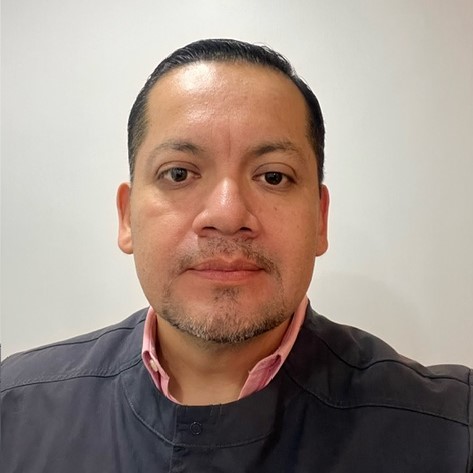
Dr. Cuauhtemoc Cano Aguilar
Dr. Cuauhtemoc Cano Aguilar
Dr Cuauhtemoc Cano Aguilar – Gynecology and Endometriosis Specialist
Summary: Dr Cuauhtemoc Cano Aguilar is a leading endometriosis specialist based in Puebla, Mexico, known for his compassionate care and surgical expertise. With a patient-centered approach, Dr Cuauhtemoc Cano Aguilar focuses on the Mullerianosis theory of endometriosis, tailoring treatment to each individual’s unique condition. He specializes in excision surgery and offers a range of medical therapies, including hormonal contraceptives, dienogest, and the levonorgestrel intrauterine device, to manage pain and symptoms. When patients experience persistent pain after surgery, Dr Cuauhtemoc Cano Aguilar carefully reevaluates each case through imaging, medication adjustments, and collaboration with pelvic pain specialists to ensure the best outcomes. His thoughtful, multidisciplinary care helps patients better understand their condition and find relief. Patients seeking expert endometriosis care in Puebla can trust Dr Cuauhtemoc Cano Aguilar’s experience, dedication, and commitment to improving quality of life.
City: Puebla, Mexico
Philosophy of Endometriosis Care: Mullerianosis
What type of surgery do you perform for endometriosis?: Excision
Medication: Hormonal Anticonceptives, Dienogest, Levonorgestrel Intrauterine Device, Analgesics.
Approach to Persistent Pain After Surgery: Medications like dienogest, painkillers, evaluation with a pelviologic specialist, and repeat imaging assessment.
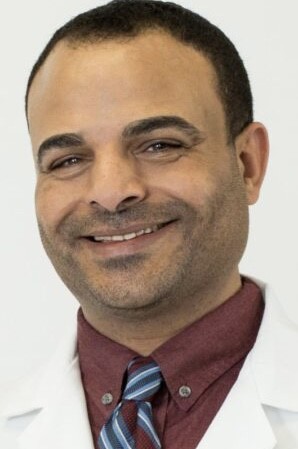
Dr. Fadel Azer
Dr. Fadel Azer
Dr Fadel Azer – Endometriosis Specialist
Summary: Dr Fadel Azer is a dedicated endometriosis specialist based in Lisle, IL, who offers compassionate, personalized care tailored to each patient’s unique needs. Dr Fadel understands the complex and multifactorial nature of endometriosis, including genetic, hormonal, immune, and environmental factors. As doctor Azer explains, deep endometriosis requires a thoughtful approach beyond conventional theories. Dr Fadel specializes in excision surgery combined with customized hormonal treatments such as Mirena IUD, oral contraceptives, and Depo-Provera to effectively manage symptoms and improve quality of life.
Dr Azer carefully evaluates persistent pain after surgery through a multidisciplinary team approach, working with pelvic pain specialists, physical therapists, and behavioral therapists. His commitment to thorough preoperative assessment and personalized postoperative care supports long-term relief and patient well-being. Patients looking for expert care in Lisle can trust Dr Fadel Azer for comprehensive, empathetic treatment of endometriosis.
City: Lisle, IL, USA
Philosophy of Endometriosis Care: I believe that the etiology of endometriosis is complex and multifactorial involving genetic, hormonal, immune, and environmental components. For most patients, I find a positive family history of the disease or one of its symptoms. While retrograde menstruation may initiate superficial endometriosis, deep endometriosis appears to have different mechanisms. Unlike superficial lesions, deep nodular lesions are not typically shed during menstruation, suggesting alternative theories such as coelomic metaplasia, induction of cellular transformation, and the embryonic remnant theory may better explain their origin. Genetic, hormonal, and environmental influences also contribute to the progression of both superficial and deep
What type of surgery do you perform for endometriosis?: Excision
Medication: Given the unique circumstances of each patient, I customize my treatment strategy accordingly. I offer a range of hormonal contraceptive options, including the Mirena IUD, oral contraceptive pills (OCPs), and Depo-Provera. Medications are provided before, during (such as inserting a Mirena or Kyleena IUD post-excision surgery while the patient is still under anesthesia, particularly for younger patients or those aiming for fertility), and after surgery. While I typically refrain from routinely suggesting GnRH agonists or antagonists, I may contemplate their use in certain instances, particularly for addressing persistent postoperative pain.
Approach to Persistent Pain After Surgery: Preparation for managing postoperative persistent pain begins during preoperative consultations. I conduct thorough assessments, including detailed medical histories and comprehensive physical exams, along with pelvic pain evaluations to explore potential conditions like spastic pelvic floor syndrome, interstitial cystitis, and irritable bowel syndrome. When central sensitization is suspected, I collaborate with a team comprising pelvic floor physical therapists, pelvic pain specialists, sex therapists, and behavioral therapists. I prescribe muscle relaxants to address pelvic floor spasms and provide treatment for interstitial cystitis or IBS through medications and lifestyle adjustments. In cases of suspected central sensitization, SSRIs may be prescribed. Additionally, I may consider GnRH agonists or antagonists for persistent postoperative pain management in specific scenarios.

Dr. Juan Carlos Canton Romero, PhD MD
Dr. Juan Carlos Canton Romero, PhD, MD
Dr Juan Carlos Canton Romero – Laparoscopic Surgeon, Endometriosis Specialist
Summary: Dr Juan Carlos Canton Romero is a leading endometriosis specialist and laparoscopic surgeon based in Guadalajara, Mexico. Known for his personalized, compassionate care, he uses a patient-centered approach grounded in the Mullerianosis theory. With expertise in minimally invasive procedures, Dr Juan Carlos performs excision surgeries tailored to each patient’s age, fertility goals, and disease stage. He also manages symptoms with medications like dienogest, GnRH inhibitors, and oral contraceptives. For persistent pain after surgery, Dr Juan Carlos recommends a holistic plan that may include physiotherapy, yoga, and ongoing hormonal support. Patients value his commitment to preserving fertility when possible and his thoughtful, evidence-based care. With Dr Juan Carlos, individuals experiencing endometriosis can expect clear communication, tailored treatment, and support throughout their healing journey. Whether seeking surgical expertise or long-term symptom relief, Dr Juan Carlos provides the experience and empathy patients need to feel heard and supported.
City: Guadalajara, Jalisco, Mexico
Philosophy of Endometriosis Care: Mullerianosis
What type of surgery do you perform for endometriosis?:
Ovarian ablation in young patients to preserve hormonal function and uterine in those who wish to preserve fertility; ovarian resection in postmenopausal patients. Uterine resection is for those who do not wish to preserve fertility. In patients with early-stage cancer with a good prognosis of the ovary and cervix and a desire to preserve fertility, conservative surgery was performed.
Medication: Oral analgesics, antispasmodics, prostaglandin inhibitors AINES, continuous oral contraceptives with Dienogest (Qlaira), continuous dienogest, GnRH inhibitors for 3–6 months, and Levonorgestrel IUD.
Approach to Persistent Pain After Surgery: Physiotherapy, rehabilitation, exercise like yoga, continuous contraceptives, and/or dienogest.
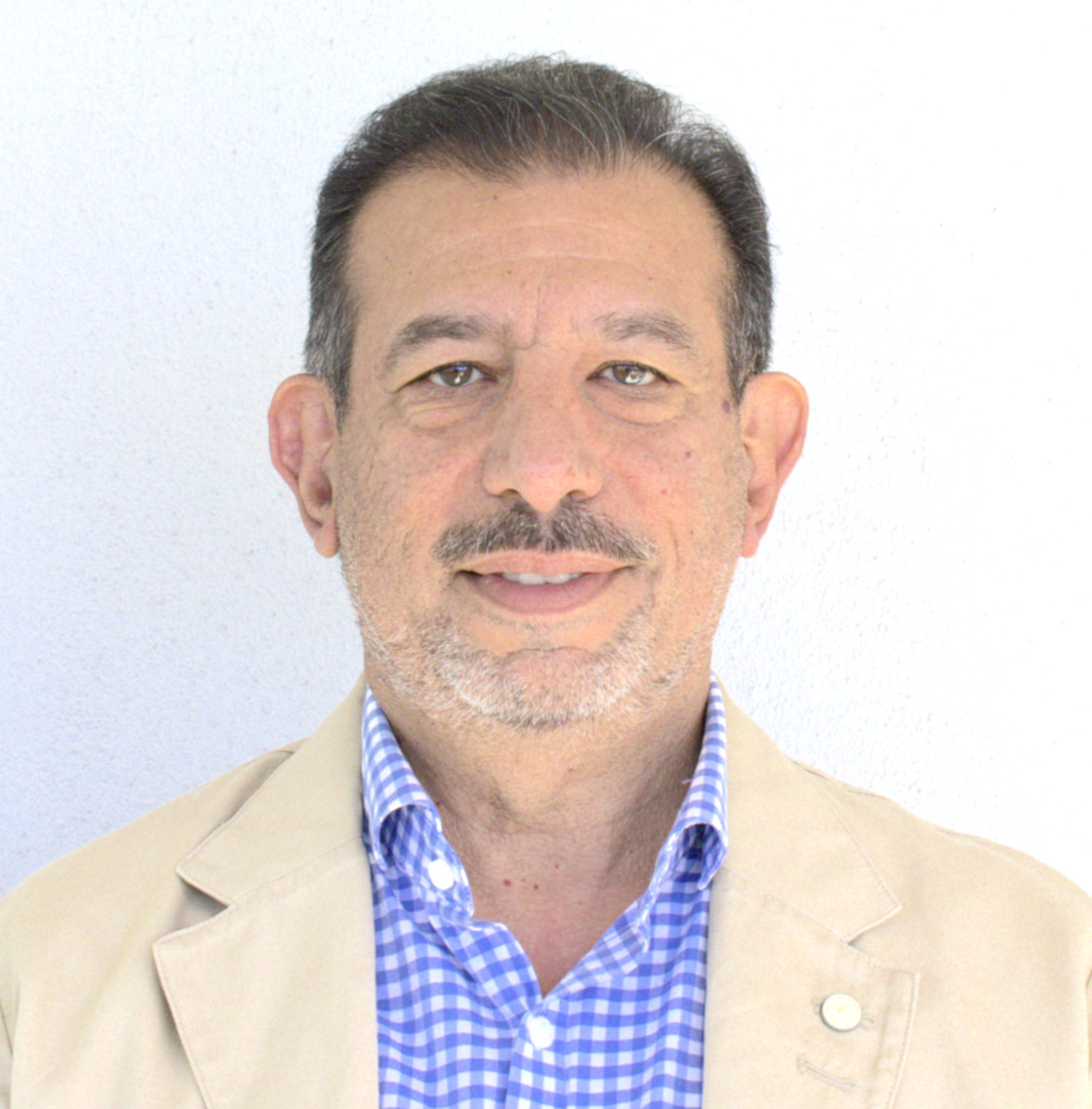
Dr. Sherif Tawfeek
Dr. Sherif Tawfeek
Dr Sherif Tawfeek – Gynecology & Minimal Invasive Surgery, Endometriosis Specialist.
Summary: Dr Sherif Tawfeek is a highly experienced endometriosis specialist based in Midland, WA, Australia. With a patient-centered and holistic approach, Dr Sherif Tawfeek combines minimally invasive surgery and advanced medical treatments to provide personalized care for those suffering from endometriosis. He offers both ablation for minimal disease and infertility concerns, and excision surgery for chronic pain cases requiring more aggressive treatment. Dr Tawfeek often incorporates medications such as Zoladex or progesterone based on each patient’s age and symptom severity. Believing in a comprehensive model of care, Dr Sherif Tawfeek also addresses persistent pain by collaborating with a multidisciplinary team that may include physiotherapists, dietitians, and pain specialists. His autoimmune-centered philosophy ensures each patient receives thoughtful, individualized care to improve quality of life and long-term outcomes. Dr Sherif Tawfeek is dedicated to supporting patients through every step of their endometriosis journey.
City: Midland, WA, Australia
Philosophy of Endometriosis Care: Autoimmune
What type of surgery do you perform for endometriosis?: Ablation for minimal ends or infertility reasons and excision for aggressive surgery in chronic pain.
Medication: Zoladex or progesterone, depending on age and severity of symptoms.
Approach to Persistent Pain After Surgery: Address other non-gyne causes and include a holistic team approach, pain specialist, physio, dietician, etc…
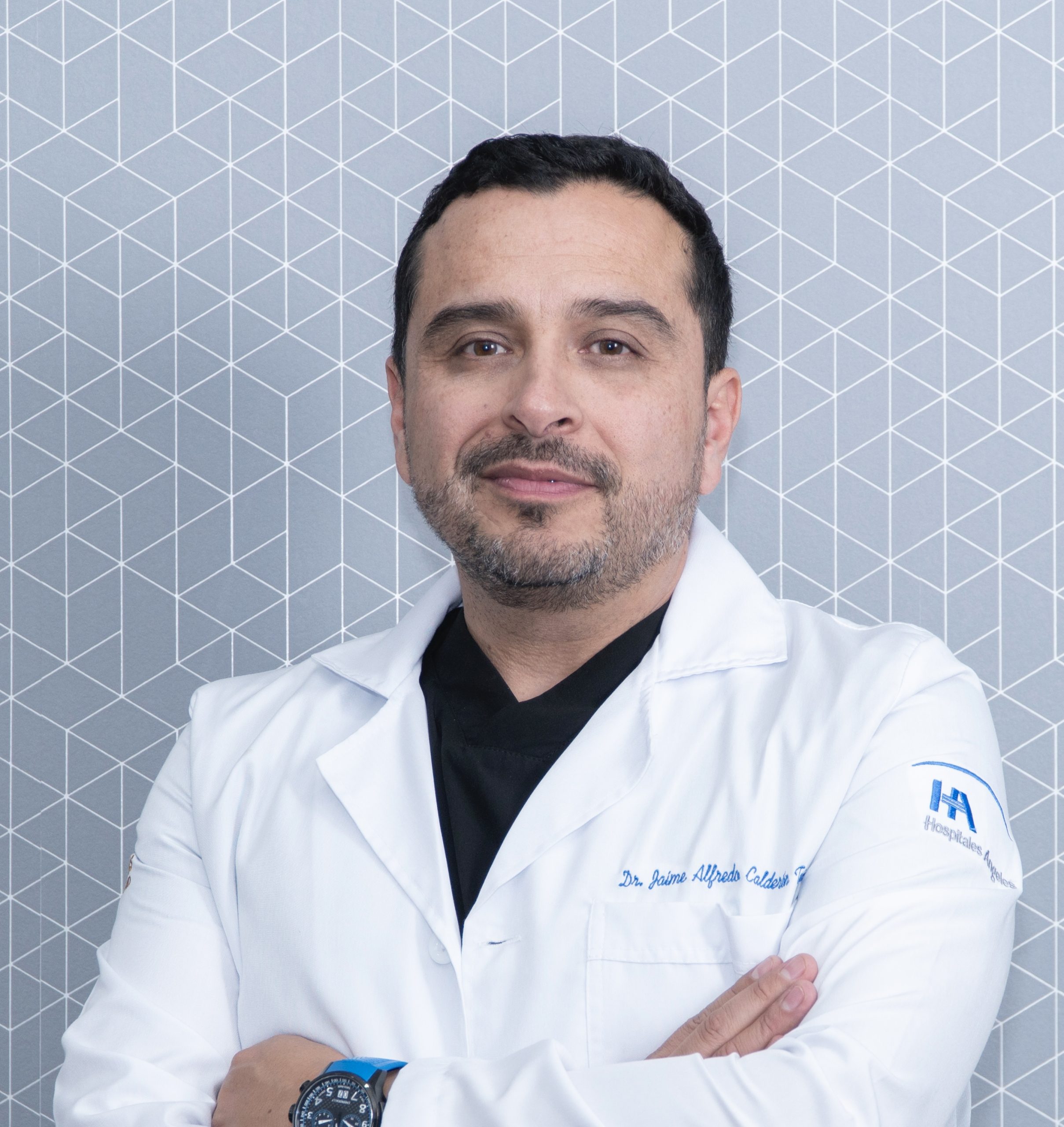
Dr. Jaime Alfredo Calderon Tapia
Dr. Jaime Alfredo Calderon Tapia, M.D.
Dr Jaime Alfredo Calderon Tapia – Endometriosis Specialist, Gynecologist, Minimally Invasive Gynecologic Surgeon
Summary: Based in Morelia, Michoacan, Dr. Jaime Alfredo Calderon Tapia is a dedicated gynecologist and minimally invasive surgeon specializing in endometriosis. With a deep understanding that multiple factors contribute to this complex disease, Dr. Jaime Alfredo Calderon Tapia approaches each case by integrating genetic, hormonal, and environmental insights to tailor effective treatments.
Dr. Calderon Tapia performs expert excision surgery to remove endometriosis lesions with precision. His medication approach includes non-inflammatory steroids, hormonal contraceptives, and progesterone therapies like levonorgestrel devices or dienogest, depending on the patient’s needs and treatment response. For persistent pain after surgery, Dr. Jaime Alfredo Calderon Tapia collaborates closely with a multidisciplinary team of specialists, including physical therapists and pain experts, and consults with international colleagues to optimize outcomes. Patients value Dr. Calderon Tapia’s compassionate, collaborative approach that prioritizes understanding and long-term relief.
City: Morelia, Michoacan, Mexico
Philosophy: None of the theories explains all the cases. I think all the theories (retrograde menstruation, coelomic metaplasia, embryonic remnants, and transformation/induction) interact as initiating factors with genetics, menstrual fluid obstruction, and propagating factors (oxidative stress, hormones, apoptosis suppression, and immune dysfunction) to explain the superficial and deep endometriosis. it’s our duty to know all the interactions to try the solve most of the cases and try to explain to the patient her condition and potential solutions.
What type of surgery do you perform for endometriosis?: Excision
Medication: Non-inflammatory steroid drug as the first line for dysmenorrhea without demonstrable endometriosis implant; hormonal contraceptive pill in the second line of dysmenorrhea with our demonstrable endometriosis progesterone treatment (intrauterine levonorgestrel device or dienogest) in cases of failure of the first and second medical treatment lines, in cases in which the patient’s condition or desire is not considered, or in patients with a high risk of postsurgical recurrence to try to avoid or reduce it.
Approach to Persistent Pain After Surgery: I submit the case to all my team for a second time, discussing the causes of the persistence of the symptoms, which include a physical therapist, psychologist, bowel surgeon, urologist, gynecological urologist, and pain expert, and later get opinions of other endometriosis colleagues around the world, mainly in Latin America. I am blessed to have a good relationship with experts in Chile, Argentina, Brazil, and here in Mexico to discuss the cases. With these meetings, I reduce the rate of failure
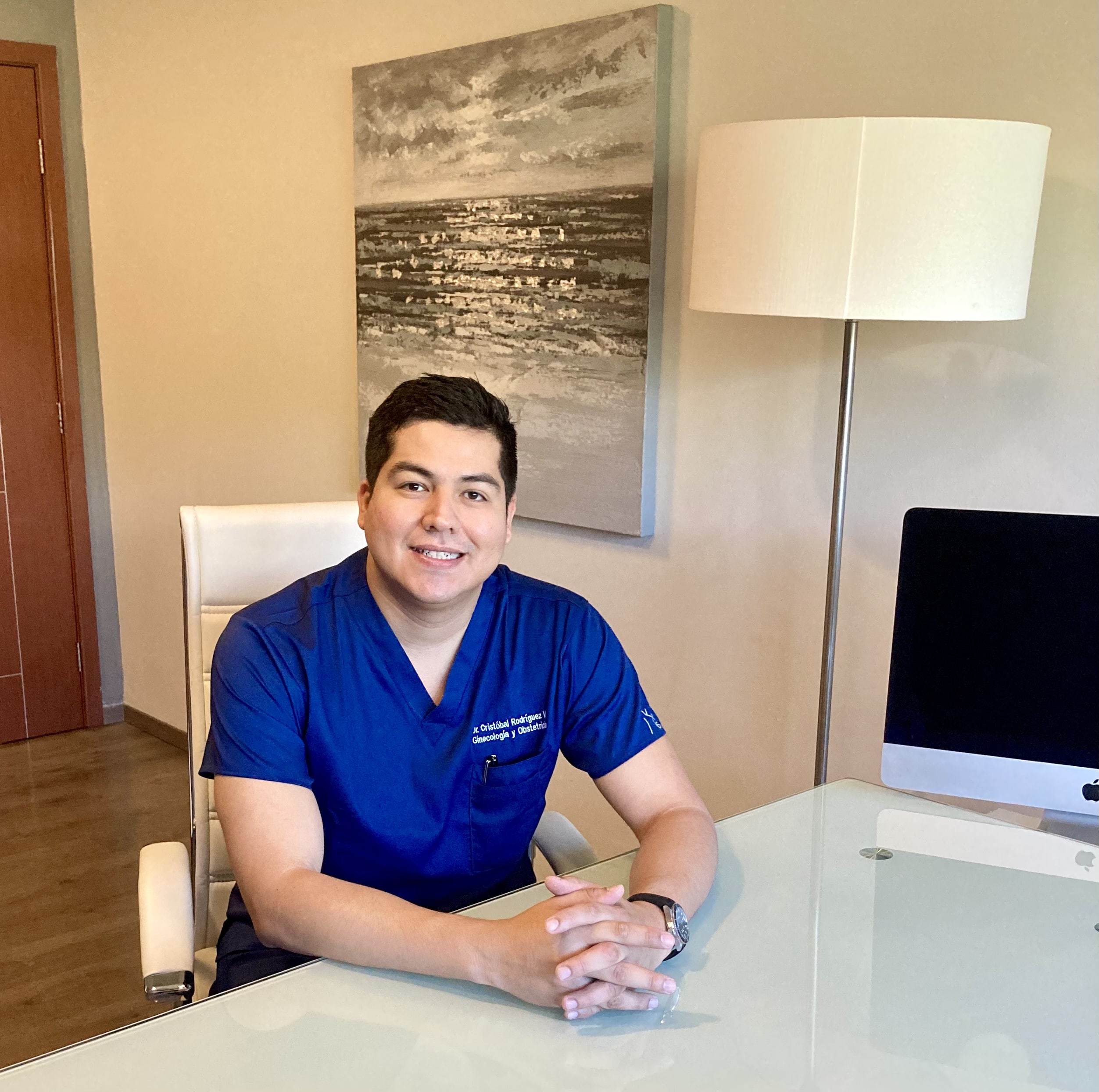
Dr. Cristobal Gerardo Rodriguez-Valero
Dr. Cristobal Gerardo Rodriguez-Valero, M.D.
Dr Gerardo Rodriguez – Endometriosis Specialist, Gynecologist, Minimally Invasive Gynecologic Surgeon
Summary – Dr Gerardo Rodriguez is a trusted endometriosis specialist based in Monterrey, Mexico. With a patient-centered approach rooted in the epigenetic theory of endometriosis, Dr Gerardo Rodriguez MD, emphasizes a comprehensive understanding of the condition, especially in teens and complex cases. He specializes in excision surgery, often using medications like Dienogest or Orlissa preoperatively to enhance surgical outcomes. Dr Gerardo Rodriguez believes in a multidisciplinary strategy for persistent pain, collaborating with psychologists and pelvic floor therapists to support holistic healing. Patients seeking expert care from Dr Gerardo Rodriguez MD benefit from his deep commitment to individualized treatment plans and his dedication to long-term symptom relief. Dr Gerardo Rodriguez combines advanced surgical skill with compassion and insight, helping patients in Monterrey and beyond find answers and relief through expert, human-centered care.
City: Monterrey, Nuevo Leon, México
Philosophy: Epigenetic theory: despite Sampson’s theory being well accepted, it does not integrate the diagnosis in teenage patients and others. I believe epigenetic englobes a more acceptable theory, conjoined with other theories like Mullerian malformations.
What type of surgery do you perform for endometriosis?: Excision
Medication: In some specific cases, previous to surgery, we decide to manage with DIENOGEST, Orlissa, or Visanette, commercial names, to suppress the disease and better prepare for excision in surgery.
Approach to Persistent Pain After Surgery: Multispecialty Management with Psychology and Pelvic Floor Therapy.

Dr. Paulami Guha, MD, FACOG
Dr. Paulami Guha
Paulami Guha MD – Gynecology & Minimal Invasive Surgery, Endometriosis Specialist
Summary: Dr Paulami Guha MD is a compassionate endometriosis specialist offering advanced care in Jacksonville, FL. Patients searching for expert support from Dr Guha Jacksonville FL can trust her thorough and personalized approach. With a strong belief in multimodal treatment, Dr Guha combines surgical excision—both robotic and laparoscopic—with medical management to address the full spectrum of endometriosis symptoms. She treats each patient holistically, considering physical, emotional, and reproductive needs. After excision, she commonly prescribes continuous hormonal therapies and offers guidance for those trying to conceive. When pain persists, Dr Paulami Guha MD integrates pelvic floor physical therapy, acupuncture, and menstrual suppression strategies to improve quality of life. Her balanced approach is rooted in coelomic metaplasia and Sampson’s theory, with a deep understanding of the disease’s complexity. Patients across Jacksonville and beyond seek Dr Guha for her expertise, empathy, and dedication to long-term healing.
City: Jacksonville, FL
Philosophy of Endometriosis Care: Coelomic Metaplasia; blockage in the reproductive tract, treating pain symptoms; multimodal management – surgical and medical, also addressing the mental component; surgical excision of endometriosis; medical management by suppression of menstruation and Sampson’s theory.
What type of surgery do you perform for endometriosis?: Robotic and Laparoscopic Excision
Medication: Surgical excision followed by continuous norethindrone vs. progestin-only pills vs OCPs. If the patient is waiting for surgery and is in pain or heavy bleeding, I do recommend GnRH antagonists or agonists. In infertility patients, I recommend trying for pregnancy right away. Have used letrozole in adenomyosis patients who are going to try for pregnancy.
Approach to Persistent Pain After Surgery: For pain, I recommend pelvic floor physical therapy and acupuncture, and also suppression of menses.

